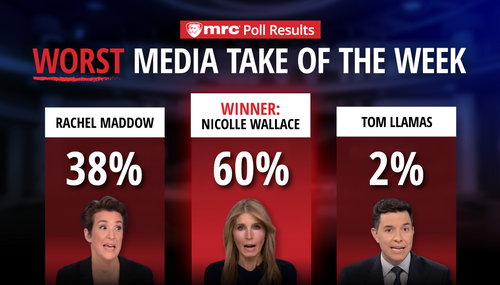When asked by CNN what "one foreign policy question" he would ask the President, Dan Rather didn't mention Libya and instead asked a generic question about a threat to world peace. Is he a journalist or a Miss America contestant?
CNN's Brooke Baldwin inquired of Rather on Monday, "what is the one foreign policy question that you are absolutely dying to ask of the President?" His answer: "What is, in your opinion, the single biggest threat to world peace and our own national security? And in a second term, if you're re-elected, what would you do to alleviate that threat?" [Video below the break. Audio here.]
In a segment focused on Monday night's foreign policy debate, the two reporters barely talked about Libya. Rather did question Romney's "tough talk." He even admitted "there are equally tough questions of other varieties for President Obama," but didn't ask them.
"So the question is, sir, do you think even though we're the world's ranking economic and military superpower, that we can afford to have confrontations with all of those countries with our military already stretched thin and our economy shaky, does it make sense – does it really make sense to be in effect threatening Russia, China, Iran and Syria to name just two, North Korea would be another?" was Rather's hypothetical question to Romney.
A transcript of the segment, which aired on October 22 on CNN Newsroom at 2:13 p.m. EDT, is as follows:
BROOKE BALDWIN: Let's switch gears, because I want to talk about – foreign policy o
DAN RATHER: Well the record shows that they probably would, unfortunately. One can argue they shouldn't, but yes I think they would.
BALDWIN: Even today.
RATHER: Even today. For example, as you pointed out, in this campaign already, that President Obama has made promises that he hasn't been specific about. One can argue, and I think rightly so, that perhaps Governor Romney has laid out some promises that he's been even less specific about. But the answer to your question is yes. That voters don't pay nearly as close attention to these campaigns as reporters and political operatives do. So it is not only possible, but probable that candidates can make promises and not spell out specifics and say I'll handle it later. You're quite right to say that in 1968, President – candidate Nixon said at that time he had a plan to end the Vietnam War, but he wouldn't reveal it until after he was elected.
BALDWIN: What is -- just fast-forward to tonight here, if you were there, in Boca Raton, what is the one foreign policy question that you are absolutely dying to ask of the President?
RATHER: Well, I would think – of the President or both candidates?
BALDWIN: Let's say the President.
RATHER: Well for the President, it is one thing. What is, in your opinion, the single biggest threat to world peace and our own national security? And in a second term, if you're re-elected, what would you do to alleviate that threat?
BALDWIN: What about to Governor Romney?
RATHER: It'd be exactly the same question to him. If elected, what do you now consider the single biggest threat to world peace and our national security? And if elected, what would you do to diminish that threat?
BALDWIN: I have some sound. I want to play some sound, this is Mitt Romney, this was from just last week, the last debate. And I have a feeling we might hear some version of this, this evening. Here he was.
(Video Clip)
MITT ROMNEY, Republican presidential candidate: The President's policies throughout the Middle East began with an apology tour and pursue a strategy of leading from behind, and this strategy is unraveling before our very eyes.
(End Video Clip)
BALDWIN: "Unraveling before our very eyes." We have heard it from Romney. We have heard it from Paul Ryan. Would you, Dan Rather, would you press Mitt Romney for specifics on that? And I ask that question because it does, as you point out – there doesn't seem to be that much difference either in terms of specifics or in terms of Obama and Romney, when it comes to Syria, Iran, Afghanistan and Iraq as well. What to do?
RATHER: Well, the question for Governor Romney, and there are equally tough questions of other varieties for President Obama, but the question to Governor Romney is that he has talked tough about Russia, calling it in effect our number one enemy and opponent. He's talked tough about China. He's talked tough and threateningly about Iran, talked tougher about Syria. So the question is, sir, do you think even though we're the world's ranking economic and military superpower, that we can afford to have confrontations with all of those countries, with our military already stretched thin and our economy shaky, does it make sense – does it really make sense to be, in effect, threatening Russia, China, Iran and Syria to name just two, North Korea would be another? So that would be a question to ask him. I think Governor Romney has been – he's seen some benefit of being on the offensive saying that President Obama is weak. But it also leaves him vulnerable on, wow, is this a guy to keep the peace?
BALDWIN: Right. All the tough talk kind of makes you wonder what that then could lead to.




